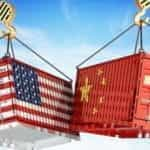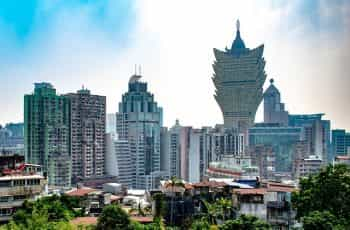New Evaluation of Macau’s Gambling Industry
While many have been blaming the US/China trade war for the recent problems in Macau’s gaming industry, new investigations show it may not be at fault. Macquarie Capital, an investment bank, insists that the issues have more to do with problems in mainland China’s private sector than anything else.
Casino.org pointed out last week that US-based casino company stocks had fallen dramatically and blamed it on the trade war with China. The operators with properties in Macau did suffer, with Las Vegas Sands dropping 4.5%, MGM Resort dropping 2.5%, and Wynn Resorts dropping more than 7%. The Asian subsidiaries also dropped: Sands China fell 3.19%, MGM China dropped 8.88%, and Wynn Macau lost 6.92%.
A Complicated Issue
While many have been quick to point the finger of blame at the current trade war going on between the USA and China, not all are convinced that it is entirely responsible.
”Macau gross gaming revenue (GGR) was surprisingly stable after U.S.-China trade tensions escalated in May. While Macau share prices have reflected sentiment towards trade negotiations, we aren’t convinced the trade war has been the core driver behind Macau’s fundamental softness. Rather, 2019 VIP volumes haven’t been reacting to changes in trade war sentiment.”– Macquarie Capital
The investment bank looked at other potential factors that could be the cause for the drops in stock and decided that the weaker domestic activity in China could be to blame. It was determined that the local economy is not receiving the type of support it needs and that “conditions for private enterprises [in China] have remained weak.” Analysts from the bank concluded: “Regardless of the trade war narrative, we don’t expect a recovery in VIP unless policy officials loosen shadow lending conditions. However, this creates an interesting buying opportunity if shadow lending picks up, but Macau share prices remain depressed as trade tensions persist (or worsen).”
It is a complicated issue, but there are certainly other factors to consider apart from the trade war. The current unrest in Hong Kong is causing disruption in Macau as well, with tourists avoiding the entire area. Matt Maddox, CEO of Wynn Resorts, said: “When you have hundreds of flights cancelled out of Hong Kong and some reluctance to travel, I do think that’s impacting the premium end of the business.” Tour operators in the region say that they have seen a 30% decrease in ticket sales from Hong Kong to Macau as a result of the protests.
Blaming the Trade War
Until Macquarie Capital addressed the issue, most seemed to be happy to place all of the blame for the drop in gaming stocks firmly on the US/China trade war. While the issue is more complicated than that, there is still some truth in the claim, as the trade war is greatly affecting the global stock markets.
The Chinese yuan is at its lowest point in over a decade. The drop happened after President Trump announced that he was considering a new round of tariffs on approximately $300billion in Chinese imported products. Trump stated: “China is intent on continuing to receive the hundreds of billions of dollars they have been taking from the US with unfair trade practices and currency manipulation. So one-sided, it should have been stopped many years ago!”

The trade war is affecting stocks in many industries.
Yi Gang, the governor of China’s central bank, denies accusations that China is trying to manipulate its currency. His statement read: “China will abide by the spirit of the G20 leaders’ summit on the exchange rate issue, adhere to the market-determined exchange rate system, not engage in competitive devaluation, and not use the exchange rate for competitive purposes and not use the exchange rate as a tool to deal with external disturbances such as trade disputes.”
The Trade War
Donald Trump has been complaining about China’s trading practices since before he took office in 2016. In 2017, the USA launched an investigation into China’s trade policies and imposed tariffs on billions of dollars’ worth of Chinese products. Beijing then retaliated by doing much the same to American products. Both countries agreed to stop new trade tariffs in December to allow for talks, but no deal was reached, and more tariffs were imposed instead.
The USA imposed three rounds of tariffs with duties up to 25%. They cover a huge range of products, everything from fashion accessories to railway equipment. China responded in kind and imposed tariffs ranging from 5% to 25% on $110bn of US products including chemicals, coal, and medical equipment.
Tariffs are imposed on Chinese goods in order to make US-made products cheaper than those imported from abroad. This is meant to encourage consumers to buy American products. The tariffs are increasingly being used as negotiation tactics in the trade war, and the IMF has warned that continuing down this path will weaken the global economy.
 Online Casinos UK
Online Casinos UK



